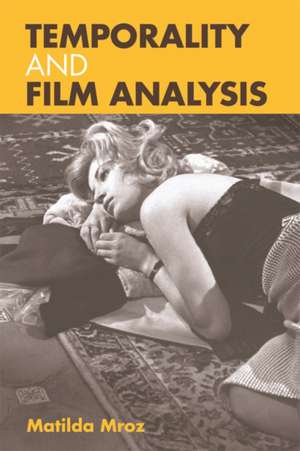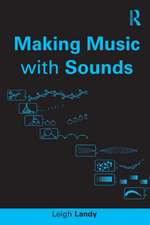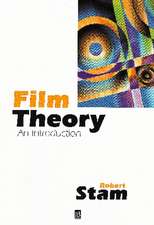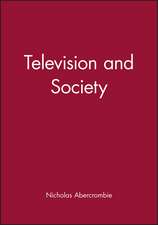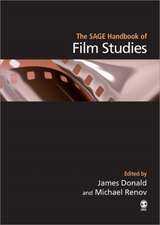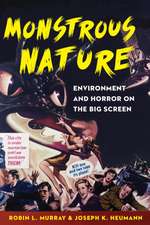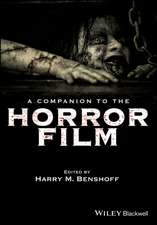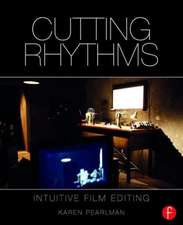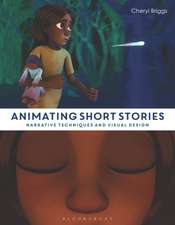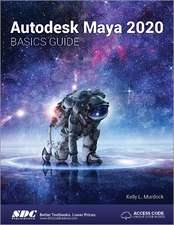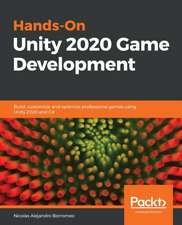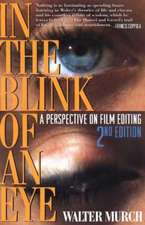Temporality and Film Analysis
Autor Matilda Mrozen Limba Engleză Paperback – 12 aug 2013
| Toate formatele și edițiile | Preț | Express |
|---|---|---|
| Paperback (1) | 191.04 lei 22-36 zile | |
| EDINBURGH UNIVERSITY PRESS – 12 aug 2013 | 191.04 lei 22-36 zile | |
| Hardback (1) | 554.62 lei 22-36 zile | |
| EDINBURGH UNIVERSITY PRESS – 13 aug 2012 | 554.62 lei 22-36 zile |
Preț: 191.04 lei
Preț vechi: 213.76 lei
-11% Nou
36.56€ • 38.26$ • 30.43£
Carte disponibilă
Livrare economică 10-24 martie
Specificații
ISBN-10: 074868591X
Pagini: 240
Dimensiuni: 151 x 231 x 20 mm
Greutate: 0.32 kg
Editura: EDINBURGH UNIVERSITY PRESS
Descriere
This book places the concept of duration at the centre of an understanding of cinema and spectatorship. The process of aesthetic imaging in time is a unique and fascinating characteristic of cinema. Why, then, has temporality, and specifically duration, received so little attention in theoretical accounts of film experience? This book makes the concept of duration the central tenet in an understanding of cinema and spectatorship. From this vantage point, the book reviews two major strands of film theory: embodied viewing and the senses, and the film-philosophy of Gilles Deleuze. Unlike much contemporary film theory, Mroz's book emphasises the necessity of considering the close relationship between intellectual comprehension and sensual apprehension, as mediated through film aesthetics. In the duration of the film experience, sensual responses to filmed textures and the interpretive contexts that we inevitably bring to bear on films are continually interacting. Exactly how this occurs is demonstrated in detailed case studies of films by Antonioni (L'Avventura), Tarkovsky (Mirror) and Kieslowski (The Decalogue).
